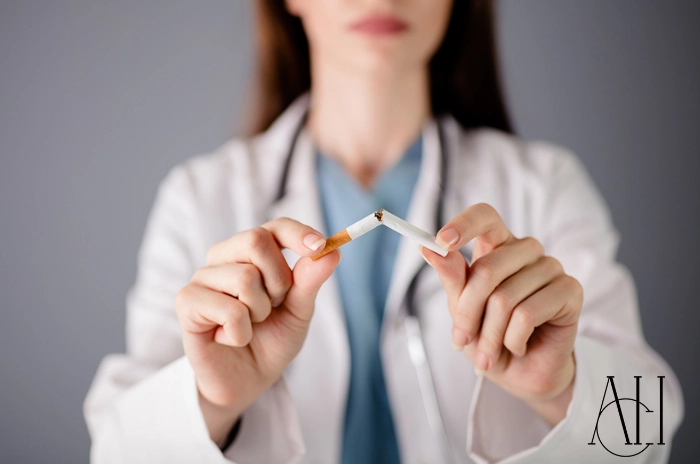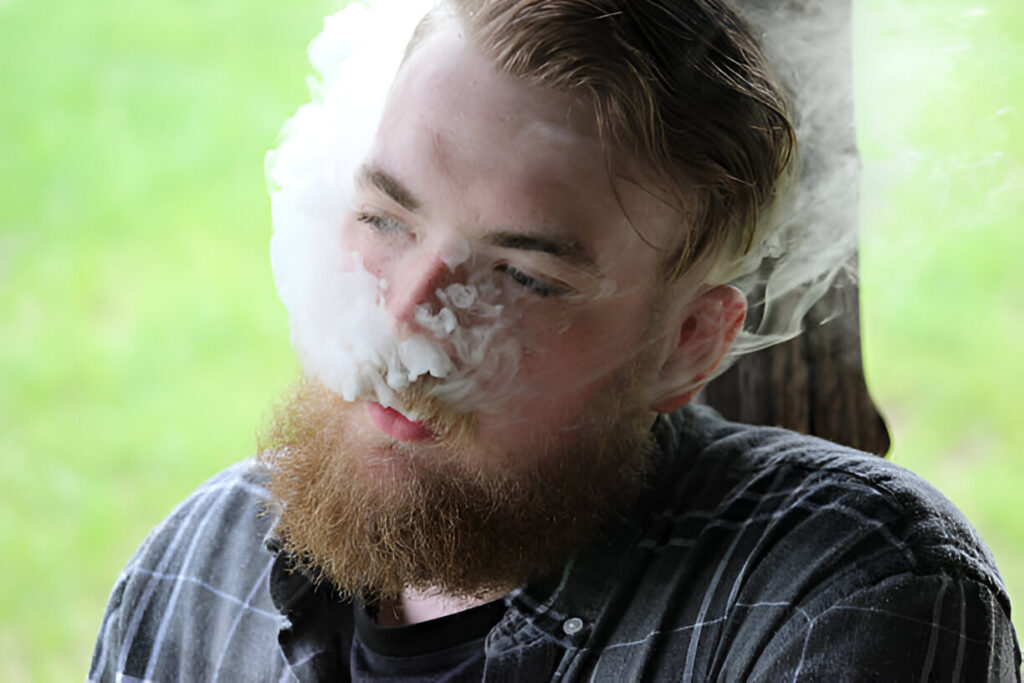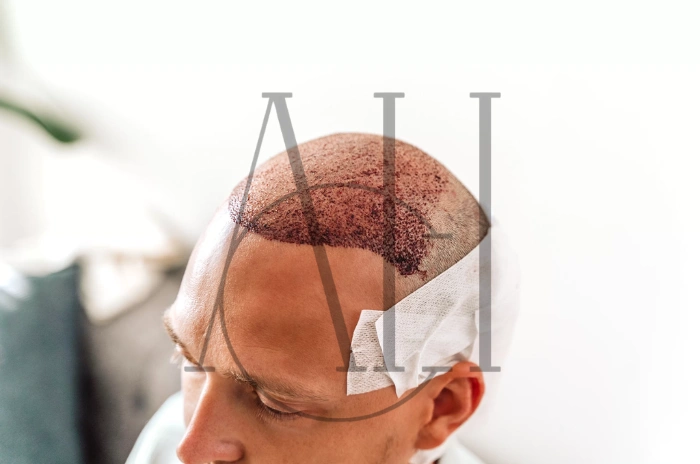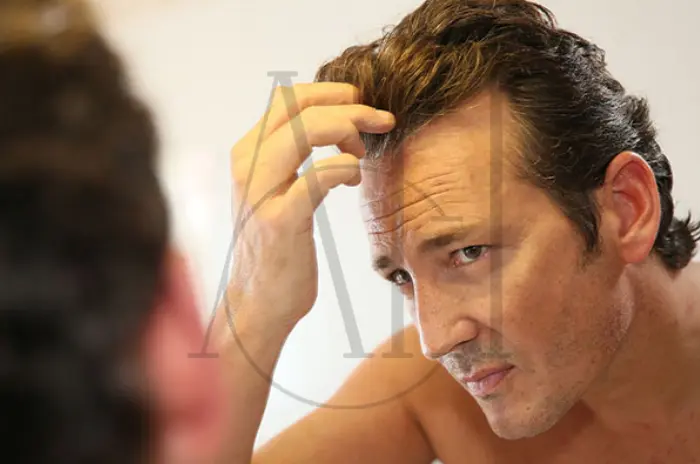Smoking is harmful to your health, but it can also affect your hair transplant results. If you are planning to get a hair transplant, quitting smoking is very important. Smoking reduces blood flow, slows healing, and can damage your new hair grafts. In this blog, we will explain why quitting smoking before and after your procedure is necessary and how it affects your hair transplant recovery and success. Following the right steps can help you protect your investment and enjoy fuller, healthier hair.
Table of Contents
ToggleWhen to Quit Smoking Before Hair Transplant?
Quit at Least 1–2 Weeks Before Surgery
Doctors recommend quitting smoking at least 7 to 14 days before your hair transplant. This helps your body prepare for the surgery. Blood flow will improve, and your skin will be in better condition. Avoiding smoking during this time allows the body to bring more oxygen and nutrients to the scalp.
Earlier Is Better
The earlier you stop, the better your results will be. Quitting smoking a few weeks or even a month before the surgery can give your hair grafts a stronger chance to grow. This will also help your immune system respond better to healing after surgery.
The Effects of Smoking on the Outcome of a Hair Transplant
Poor Healing and Weak Grafts
Smoking lowers the amount of oxygen in your blood. This can slow down healing and make it harder for grafts to survive. You may lose more grafts if you continue to smoke. Over time, this leads to less visible hair growth and poor density.
Less Hair Growth
Smoking also affects your body’s ability to grow new hair. The transplanted hair may grow slower, or the result may not look full and natural. Your scalp may stay inflamed longer, and recovery may take more time than usual.
Is Smoking Permitted After a Hair Transplant?
Avoid Smoking for at Least 2 Weeks
Smoking is not recommended after a hair transplant. Try to stay away from cigarettes for at least 2 weeks after the procedure. This is when healing is most important. Letting the grafts settle without exposure to nicotine increases their survival.
Longer Is Better
If possible, avoid smoking for a full month or more. This gives your grafts time to become strong and fully attached. A longer smoke-free period leads to better hair quality and improved overall results.
Why You Should Avoid Smoking After FUE
Smoking Slows Down Healing
FUE (Follicular Unit Extraction) is a delicate procedure. Smoking makes your body heal slower and increases the chance of infection. It also makes the scalp dry and more sensitive.
Graft Survival Rate Drops
The success of FUE depends on how well the grafts heal. Smoking lowers their chance of survival. Less blood flow means fewer nutrients reach the hair roots.
Albania Hair Clinic – Trapianto Capelli in Albania (@albaniahairclinic)’in paylaştığı bir gönderi
What Are The Risks Of Smoking Right After A Hair Transplant Surgery?
Infections and Poor Results
Smoking right after surgery can cause infections and slow healing. It may lead to redness, swelling, and loss of grafts. The smoke irritates the skin and may delay the growth cycle of hair.
More Pain and Discomfort
Because smoking affects blood flow, your scalp may not heal well, and you could feel more pain or irritation. The discomfort may also last longer than expected.
Can You Smoke Before and After a Hair Transplant?
No, It Is Not Safe
Smoking before and after surgery is not safe. It increases the risk of poor results, complications, and failed grafts. It also makes your recovery uncomfortable and less effective.
Quit Smoking for Better Success
The best choice is to quit smoking completely or take a break before and after your procedure. Even reducing the number of cigarettes can help improve your results.
What is the Impact of Smoking on Hair and Hair Transplants?
Smoking and Hair Loss
Smoking causes hair loss by reducing blood flow to the scalp. It can damage hair roots and speed up hair thinning. Long-term smoking weakens the entire hair structure.
Smoking Reduces Hair Transplant Success
If you smoke, your hair transplant may not grow well. You may see less hair and slower recovery. Smokers often need more sessions to achieve the same results as non-smokers.
The Association Between Hair Loss and Cigarette Smoking
Smoking Weakens Hair Follicles
Studies show that people who smoke have higher rates of hair loss. Cigarette smoke affects the health of hair follicles. It reduces the life span of each hair strand.
Early Hair Loss in Smokers
Smokers may experience hair loss at a younger age compared to non-smokers. This can affect transplant planning. Your doctor may recommend waiting or adjusting your treatment.
Chemical Agents and Hazardous Materials
Harmful Substances in Cigarettes
Cigarettes contain harmful chemicals like nicotine, carbon monoxide, and tar. These reduce oxygen in the blood and damage your skin. They also interfere with normal body repair functions.
Bad for Healing and Hair Growth
These chemicals are very bad for healing and may reduce the success of your hair transplant. The grafts may dry out or get inflamed more easily.

The Risks of Smoking After Hair Transplantation
Graft Failure
Smoking after surgery may cause your hair grafts to fail. Without enough oxygen, they may not grow properly. You may see poor density and gaps in your transplant area.
Visible Scarring
Slow healing can lead to scars on the donor and transplant areas. This can affect the appearance of your hair. It also increases the chance of infection.
Insufficient Blood Flow and the Graft’s Durability
Oxygen Is Important
Hair grafts need oxygen to survive and grow. Smoking reduces oxygen and can weaken your results. Oxygen is essential for building new blood vessels in the treated area.
Graft Durability Goes Down
Weak blood flow causes poor healing. Your hair grafts may fall out or grow thin. Over time, the results may look less natural.
How Long Does It Take to Get a Hair Transplant If You Smoke?
Depends on Your Health
If you smoke, your doctor may delay your surgery until you quit. This is to give your body time to heal and prepare. Smokers may also need more tests before surgery.
Plan Ahead
If you are a smoker, plan to quit smoking at least a few weeks before your hair transplant. Set a goal and follow a routine to help you stay smoke-free.
When Can I Start Smoking After a Hair Transplant?
Wait at Least 2–4 Weeks
Most doctors say you should not smoke for at least 2 to 4 weeks after surgery. This helps your scalp and grafts heal fully. Every extra day you stay smoke-free supports better results.
Talk to Your Doctor
Always ask your doctor before starting again. They may suggest waiting even longer. Some people are advised to quit permanently for better hair and health.
Can I Vape Instead of Smoking?
Vaping Still Has Risks
Vaping is not safe after a hair transplant. It still reduces blood flow and adds harmful chemicals to your body. It may also contain nicotine, which is harmful for healing.
Better to Avoid All Nicotine
Nicotine in any form can affect healing. It’s best to avoid vaping, too. Talk to your doctor about safer options if needed.
Can I Smoke Weed After Hair Transplant?
Not Recommended
Weed smoke can irritate your lungs and reduce oxygen. It may also affect blood pressure and healing. Smoking weed carries similar risks to tobacco after surgery.
Wait Until Fully Healed
Avoid smoking weed for at least a few weeks after surgery. Follow your clinic’s advice and take care of your scalp.
Can I Use Nicotine Gums Or Patches?
Talk to Your Doctor First
Nicotine gums and patches are better than smoking, but they still contain nicotine. Ask your doctor if they are safe for you. They may offer nicotine-free alternatives.
Use Only If Approved
Do not use any nicotine products unless your doctor says it’s okay. This includes sprays and lozenges.
How Does Smoking Affect The Healing Process After A Hair Transplant?
Healing Takes Longer
Smoking makes healing slower. This can delay your final results and cause problems with graft growth. Swelling and redness may last longer too.
Risk of Infection Increases
The risk of infection is higher in people who smoke. Your scalp may stay red or swollen for longer. You may also feel more discomfort during the healing stage.
Does Smoking Impact The Success Of A Hair Transplant?
Yes, It Does
Smoking affects almost every part of the healing and hair growth process. Success rates are lower in people who smoke. This means fewer healthy hairs and longer recovery.
Better Results for Non-Smokers
Non-smokers heal faster and often see better and fuller hair growth. Their grafts survive longer and look more natural.

Are There Any Specific Recommendations For Smoking Cessation Post-Hair Transplant?
Follow Your Clinic’s Advice
Most clinics will give you advice on quitting smoking. Follow these instructions carefully. They may include diet, rest, and medicine.
Ask for Help
If you need support, ask your doctor about programs or medications to help you stop smoking. They can recommend tools like apps, therapy, or quitlines.
How To Manage Nicotine Cravings After Hair Transplant?
Drink Water and Stay Busy
Drink water, chew gum, or keep your hands busy to avoid smoking. Go for a short walk or listen to music. Stay in places where smoking is not allowed.
Use Support Tools
Try apps or talk to friends who can help. Join online groups or contact quitlines for support. The more help you have, the easier it is.
Try To Stop Smoking Before The Procedure
Your Results Depend on It
Stopping before your transplant will help you get the best results. Your grafts will grow better and faster. You may also need fewer sessions.
Make a Plan
Choose a date to quit smoking and stick to it. Get help if needed, and talk to your clinic for advice. Write down your reasons for quitting to stay motivated.
How Smoking Impacts Hair Transplant Healing
Slower Recovery
Smoking slows down every part of healing. This includes scab removal, redness, and hair growth. You may need more time to return to daily activities.
More Risk of Complications
Smokers may face infections, pain, or poor hair growth after surgery. They also need more follow-ups with the doctor.
When to Pause and Resume Smoking After a Hair Transplant
Pause Before and After Surgery
Stop smoking at least 1–2 weeks before and 2–4 weeks after surgery. This helps healing and improves results. The longer the pause, the better the outcome.
Ask Before Resuming
Always ask your doctor when it is safe to start again. Avoid rushing back to old habits. Every day you stay smoke-free improves your hair health.
How To Stop Smoking After A Hair Transplant?
Use a Quit Plan
Set a quit date and tell your family or friends. Remove cigarettes and lighters from your home. Avoid places where others smoke.
Seek Help
Use support groups, quitlines, or apps. Talk to your doctor about nicotine-free options. Don’t be afraid to ask for help.
Why Should I Stop Smoking Before and After My Hair Transplant?
Healthier Body, Better Hair
Quitting smoking makes your body healthier. Your blood flow improves, which helps your hair grow better. You will also recover faster from surgery.
Protect Your Investment
A hair transplant is a big step. Don’t risk your results by continuing to smoke. Stay healthy and enjoy your new look.
How Does Smoking Affect Blood Vessels?
Blood Flow Becomes Weak
Smoking narrows your blood vessels. This makes it hard for oxygen and nutrients to reach the grafts. Poor blood flow leads to poor healing.
Poor Circulation Means Poor Healing
Without good blood flow, your scalp may take longer to heal, and grafts may not grow well. You may see fewer hairs or uneven results.
Quitting smoking before and after your hair transplant is one of the most important things you can do for success. Smoking affects healing, hair growth, and your final results. With the right support, you can quit smoking and enjoy strong, healthy hair. Talk to your doctor for help, make a plan, and protect your hair investment.
Frequently Asked Questions
Can I smoke before a hair transplant?
It’s best to stop smoking at least 1–2 weeks before the procedure. Smoking can reduce blood flow and affect the healing process.
How long should I wait to smoke after a hair transplant?
You should avoid smoking for at least 2 to 4 weeks after surgery. Longer is better to help your grafts heal and grow.
Does smoking affect hair transplant results?
Yes, smoking can slow healing, reduce hair growth, and increase the chance of graft failure.
Can I vape or use nicotine gum after my transplant?
Vaping and nicotine gum are not recommended unless approved by your doctor. They can still affect healing due to nicotine.
What happens if I smoke after a hair transplant?
If you smoke after surgery, you may have slower healing, higher risk of infection, and poorer hair growth.




